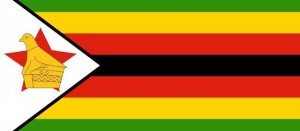- WICKNELL CHIVAYO left school at 15
- DISGRUNTLED Zimbabwe police stage uniform protest.
- MNANGAGWA wife Auxillia drops charges against nine women who boed her in Manicaland
- O.J. Simpson dies of cancer , aged 76.
- South Africa ANC is the cause of ZIMBABWE troubles claims Zimbabwe opposition politician Job Sikhala
OVER 50% of Zimbabwe’s national herd of 5,2 million cattle will likely be wiped away by the 2019 drought, if no mitigatory measures are taken soon according to farmers and livestock experts

OVER HALF OF ZIMBABWE’S NATIONAL HERD OF of 5,2 million cattle will likely be wiped away by the 2019 drought, if no mitigatory measures are taken soon according to farmers and livestock experts.
The Zimbabwe militarised Mnangagwa regime does not have programmes to combat the effects of drought on livestock farming.
The drought is causing farmers to struggle due to the rise of livestock diseases, critical shortages of dipping chemicals along with the horrendous effects of the 2018/19 summer season El Niño-induced drought.
Across Zimbabwe, the drought has led to less pastures , dry water bodies and fueled the deaths of both wild and domestic animals.
Farmers have no capacity to manage the situation alone as it requires government intervention, as stockfeed, vaccines and dipping chemicals are beyond the reach of many farmers due to costs.
It is also worsened by the fact that, Zimbabwe’s Stockfeed Manufacturers mourn about the general non-availability of raw materials, meaning that some stockfeed operators are unable to even fulfil orders by non-governmental organisations for charity to farmers as survival stockfeeds.
The price of high crude protein cotton cake has shot up from ZWL$400 to ZWL$1 200 per tonne in the short space of time from January to March 2019, while at the same time Zimbabwe is short of molasses, wheat and maize brans.
Farmers must swiftly consider reducing their livestock numbers such as disposing of sick and disabled animals which would not survive a drought as a way of mitigating the impact of the drought, and use proceeds of sales to buy dipping chemicals, vaccines and stockfeed.
Farmers need to accept that pastures are fast depleting and water bodies are drying up, so herd sizes must be cut down to to manageable numbers. At present, already all districts in the Matebeleland North province do not have adequate pastures and water resources, set to run out by July or mid-August 2019.
The shortage of water alos means that animals will be in conflict with human beings over water, leading to regular break down or fast drying up boreholes.
Besides buying supplementary livestock feed , farmers should also dig wells for water. However it is important to realise that the militarised , broke Mnangagwa regime must implement at national level, summer season El Niño-induced drought. programmes to assist Zimbabwe’s farmers obtain discounted stockfeed prices , for affordability.
In Midlands province the worst affected districts are Mberengwa, Zvishavane, Kwekwe and Gokwe North, while so far Mhas alreadyasvingo province lost close to 40 000 cattle to El Niño-induced drought .
The best approach for farmers is to immediately feed their livestock rather than wait for the animals condition to deteriorate by September when the drought situation will grow worse. Livestock should not have to walk long distances for pastures and water , in order to avoid exhaustion.
It is a shame that Zimbabwe’s economy is agriculture based with the sector contributing 11% to the total gross domestic product . Agriculture is the main source of livelihood for approximately 67% of the population.
Zimbabweans must also desist from burning grass, where they may have excess grass due to better rains, but instead cut the grass and make hay bales for other provinces with serious n stockfeed need. More nes to follow. By Sibusiso Ngwenya
INFORMATION IS POWER!-Please email all your articles, photos and breaking news, to newzimbabwe.vision@yahoo.com ,linkedin.com/in/sibusiso-ngwenya-563a572b or whatsapp to Mr Sibusiso Ngwenya 0044 79 3 9100534 for publication on the constantly growing online groups, currently standing as follows1)Zimbabwe News 4 us Zimbabweans 190,867 Members2)ZIMBABWE NEWS, BUILDING A PROSPEROUS POST 2018 VISION 32,167 Members3) New Zimbabwe Vision group 18,664 members4) Newzimbabwevision.com website 22,798 likes22,795 followers.
https://www.facebook.com/sibusiso.ngwenya.967 Followed by 12,277 people